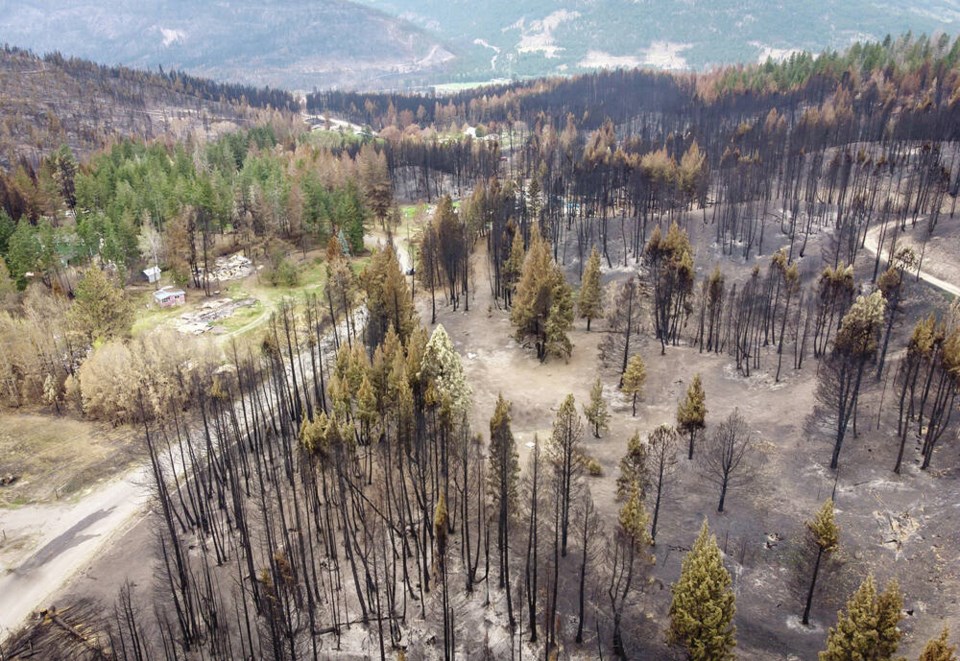Living things need water to survive.
That includes us, our pets, our flowers and lawns.
Trees. Birds. Bees and all other crawly critters. Bacteria, fungi, and at some stages of their lives, viruses, too.
Cows, pigs, tomatoes, wheat, yeast and the other ingredients in pizza. Potatoes, cod, barley and everything else that goes into beer-battered fish and chips. Seaweed, rice and salmon. Corn, soya, and whatever else makes up Doritos. Grapes for eating and eventual drinking. Chocolate. Sugar.
Pretty much everything that lives — including much of what supports our ongoing good (and bad) health and well-being — needs water.
So when the Intergovernmental Panel on Climate Change notes with very high confidence that “terrestrial, marine, and freshwater ecosystems are being profoundly altered by climate change across North America,” we should be concerned.
But we don’t need the IPCC Sixth Assessment Report to tell us that. Chapter 14 of the report deals with climate-change impacts and risks, vulnerability, and so on, in North America. It reads much like a general summary of our experience here in B.C. over recent years.
“Glaciers have retreated over the past half-century at high elevation,” and “reduced snowpack and earlier runoff have adversely affected aquatic ecosystems and freshwater availability for human uses.”
Researchers at UNBC and the Hakai Institute just published a study showing that B.C.’s glaciers have been melting about seven times faster over the past decade than in previous decades, thanks largely to warming climate.
The smaller glaciers here on Vancouver Island are shrinking even faster.
The resulting diminished ice and snow stores affects water flow and supply throughout the year across much of the province.
We’ve all dealt with summer water restrictions here on the south coast, where our water supplies collect both rainwater and runoff from the disappearing and much-diminished annual mountain snowpack.
Residents of the Gulf Islands, where a year’s winter snowfall is maybe a one- or two-day event, face an even more dire situation.
A friend who sits on one of the 13 boards governing water use from Mayne Island’s aquifers monitors available water levels in the storage tanks for his part of the island daily. In July and August, it can come down to whether people have enough water to drink and cook with, so forget about watering the petunias.
Salmon and steelhead populations are suffering from creeks receiving smaller inputs of cold glacier-fed water during the summer. The impacts on those economically important species reverberate through communities.
In coastal waters, even sea stars and eelgrass are dealing with increased disease spreading because of warmer waters.
“Recent severe droughts, floods and harmful algal and pathogen events have caused harm to large populations and key economic sectors,” Chapter 14 continues.
We know about drought, and November’s floods affected 18,000 B.C. residents, with an estimated $7.5 billion in insured losses. Some farmers and their crops face years of recovery.
Regarding climate-related pathogens, harmful microbes have hit the east Island’s shellfisheries repeatedly in the past decade.
“Warm and dry conditions associated with climate change have led to tree die-offs and increased prevalence of catastrophic wildfire with an increase in the size of severely burned areas.”
Last year, B.C. spent $565 million on fighting about 1,600 wildfires that burned 868,203 hectares. In 2017, $649 million was needed to fight about 1,350 wildfires.
Much of Chapter 14 deals directly or indirectly with how climate change is affecting water supplies and availability, and what that could mean for ecosystems and human systems in the coming decades.
Given that, the B.C. government’s watershed security initiative is timely.
The proposed Watershed Security Strategy focuses on freshwater, including both ground and surface water, and is the next chapter toward implementing B.C.’s Water Sustainability Act. Key themes include governance, climate change, ecosystems and sources of drinking water, as well as community and economic stability.
The document defines “watershed security” as implying “the availability of good-quality water for healthy ecosystems and communities.” Including the term in the strategy’s title indicates a willingness to address the issue holistically — which is needed for watersheds to be secure.
But even as we become more familiar with heat domes, collapsing fish populations, and catastrophic wildfires and floods, it’s early days for the strategy’s development. The government released its discussion paper in January for public input.
The deadline for submitting feedback is March 18. See gov.bc.ca/water to submit.
keiran_monique@rocketmail.com



